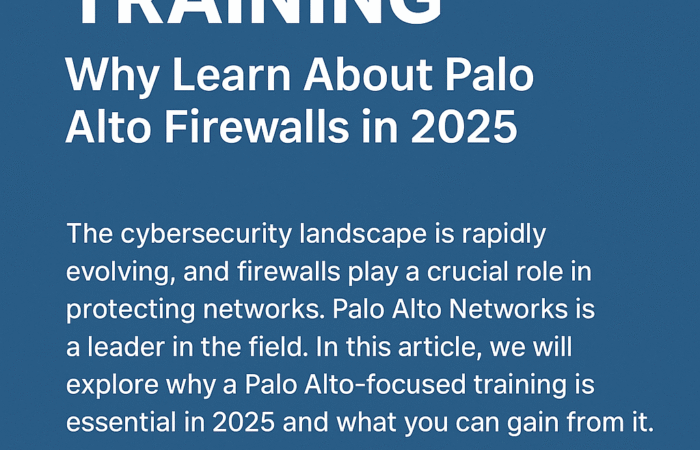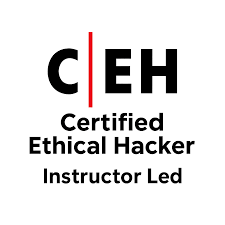Palo Alto Training – Learn Palo Alto Firewalls in 2025

Introduction : In the world of cyber security, digital forensics has become an increasingly important field as businesses and individuals face the growing threat of cybercrime. With hackers becoming more sophisticated, organizations need experts who can investigate and respond to cyber incidents. One of the leading certifications in this field is the Certified Hacking Forensic Investigator […]
Introduction : In the world of cyber security, digital forensics has become an increasingly important field as businesses and individuals face the growing threat of cybercrime. With hackers becoming more sophisticated, organizations need experts who can investigate and respond to cyber incidents. One of the leading certifications in this field is the Certified Hacking Forensic Investigator (CHFI), offered by EC-Council. This certification validates the skills and knowledge required to identify and respond to cybercrimes using a systematic approach to digital forensics.
What is CHFI?
The Certified Hacking Forensic Investigator (CHFI) certification is designed for professionals who wish to gain expertise in digital forensics and investigate cybercrimes. The CHFI training covers a range of topics, from identifying malicious activities and tracing cybercriminals to understanding how digital evidence can be legally collected and preserved for use in court.
Forensic investigators are tasked with uncovering and analyzing digital evidence from compromised systems and network infrastructures, often requiring them to deal with complex situations involving hacking attempts, data breaches, and cyber-attacks. A CHFI-certified professional is equipped with the knowledge to handle these tasks, ensuring that investigations are thorough, effective, and legally sound.
Why Pursue CHFI Certification?
The CHFI curriculum is structured to provide in-depth knowledge of various aspects of digital forensics. Some of the key topics include:
Understand how to analyze malware and trace its origins to determine how it infiltrated a system, what damage it caused, and how it can be prevented in the future.
Understand the fundamentals of computer forensics and how to recover evidence from hard drives, mobile devices, and other digital media.
Analyze network traffic and investigate network-based attacks, including how to track cybercriminals through network logs and traffic patterns
Learn how to extract and analyze data from mobile devices, including smartphones and tablets, which are often targets of cybercrimes.
Learn the importance of documenting findings in a clear and detailed manner for use in court, including how to create reports that are clear, accurate, and legally sound.
Explore the legal frameworks surrounding digital evidence, including data privacy laws, chain of custody, and how to handle evidence without compromising its integrity
Get certified with industry-leading cybersecurity certifications from EC-Council, PECB, Palo Alto Networks, and more.

Learn from world-class instructors Collaborate with top professionals Advanced training...

The CEH is the world's leading cybersecurity certification, recognized by...

Onsite training course Led by an instructor Interactive sessions

Asynchronous, self-study environment Video-streaming format Flexible learning schedule
Adding {{itemName}} to cart
Added {{itemName}} to cart

